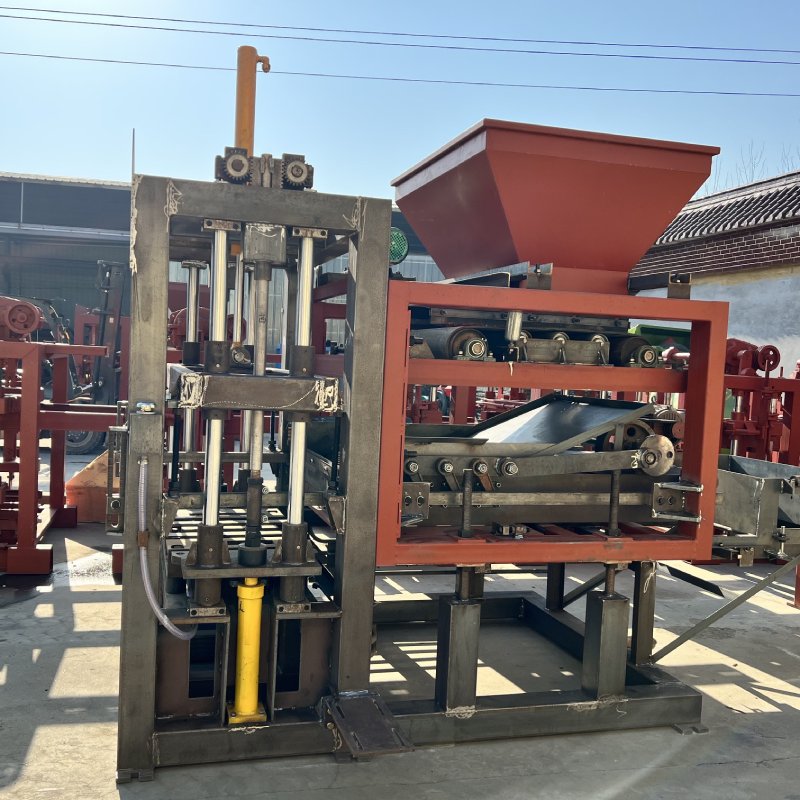
Image source:Aiwei block machine
Introduction
The brick making industry in China plays a significant role in meeting the demand for construction materials. However, the industry also faces challenges related to resource consumption, environmental impact, and the need for sustainable practices. To address these challenges, skills development and training programs have emerged as essential components for promoting sustainable brick making in China. These programs aim to enhance the skills and knowledge of brick manufacturers, workers, and technicians, enabling them to adopt and implement sustainable practices. This article explores the importance of skills development and training programs and their impact on promoting sustainability in the Chinese brick making industry.
Importance of Skills Development in Sustainable Brick Making
Knowledge of Sustainable Practices
Skills development programs are crucial for equipping brick manufacturers and workers with the knowledge of sustainable practices in the industry. This includes understanding the principles of sustainable brick production, resource efficiency, waste reduction, and environmental impact mitigation. By enhancing their understanding of sustainable practices, manufacturers can make informed decisions and implement measures that promote eco-friendly and efficient brick production.
Technical Skills for Sustainable Machinery Operation
Sustainable brick making often requires the use of advanced machinery and equipment. Skills development programs focus on training brick manufacturers and workers in the operation, maintenance, and repair of sustainable brick making machinery. This ensures that the equipment is utilized effectively and optimally, minimizing energy consumption, reducing emissions, and maximizing resource efficiency.
Waste Management and Recycling Skills
Effective waste management and recycling are essential for sustainable brick making. Skills development programs provide training in waste management techniques, including waste segregation, recycling, and reuse. Manufacturers and workers learn how to identify and separate waste materials, implement recycling processes, and utilize recycled materials in brick production. These skills contribute to waste reduction, conservation of resources, and a more sustainable production process.
Environmental Monitoring and Compliance Skills
Skills development programs also focus on environmental monitoring and compliance. Brick manufacturers and workers learn about environmental regulations, emission standards, and pollution control measures. They acquire the skills necessary to monitor and assess the environmental impact of their operations, ensuring compliance with relevant laws and regulations. This promotes responsible and sustainable brick production practices that minimize environmental harm.
Government Initiatives and Training Programs
Technical and Vocational Education and Training (TVET)
The Chinese government has recognized the importance of skills development in the brick making industry and has initiated various programs to support technical and vocational education and training (TVET). These programs aim to enhance the skills and knowledge of individuals involved in brick production. TVET programs provide theoretical and practical training in sustainable brick making practices, machinery operation, waste management, and environmental compliance. They play a crucial role in equipping individuals with the necessary skills for sustainable brick production.
Research and Development Centers
The government has also established research and development centers focused on sustainable brick making. These centers conduct research, develop innovative technologies, and provide training programs for manufacturers, workers, and technicians. They serve as knowledge hubs for sustainable practices, disseminating information, and best practices to promote sustainable brick production across the industry. Through these centers, brick manufacturers can access the latest advancements in sustainable technologies and gain insights into implementing them effectively.
Industry-Driven Training Initiatives
Collaboration with Equipment Manufacturers
Brick manufacturers often collaborate with equipment manufacturers to develop customized training programs. Equipment manufacturers provide training on the operation, maintenance, and repair of sustainable brick making machinery. These training programs ensure that manufacturers and workers are proficient in using the machinery efficiently and effectively, optimizing its performance for sustainable brick production.
Industry Associations and Knowledge Sharing
Industry associations play a vital role in skills development by organizing training workshops, seminars, and conferences. These platforms bring together industry professionals, experts, and stakeholders to share knowledge, experiences, and best practices related to sustainable brick making. Industry associations facilitate networking opportunities and promote collaborative learning, fostering a culture of continuous improvement and sustainable development in the brick making industry.
Integration of Sustainable Practices in Curricula
Skills development programs are increasingly integrating sustainable practices into formal educational curricula. Technical schools, universities, and vocational institutes are incorporating modules on sustainable brick making in their programs. This ensures that future brick manufacturers and workers receive comprehensive training on sustainable production methods, environmental stewardship, and resource-efficient techniques. By integrating sustainability into educational curricula, the industry ensures a sustainable workforce for the future.
International Cooperation and Knowledge Exchange
China actively participates in international cooperation and knowledge exchange programs focused on sustainable brick making. Through partnerships with international organizations, governments, and industry bodies, China gains exposure to global best practices, technologies, and initiatives. These collaborations facilitate knowledge exchange, technical assistance, and capacity building, enabling Chinese brick manufacturers to learn from international experiences and adopt sustainable practices in line with global standards.
Conclusion
Skills development and training programs are integral to promoting sustainable brick making in China. By equipping manufacturers, workers, and technicians with the necessary knowledge and skills, these programs facilitate the adoption of sustainable practices in the industry. Through government initiatives, industry-driven training initiatives, and international cooperation, China is making significant strides in enhancing skills development for sustainable brick making. With a skilled workforce and a commitment to sustainability, the Chinese brick making industry is well-positioned to contribute to a greener and more sustainable construction sector.
